About an hour due east of the sprawling metropolitan jungle of Seoul, South Korea, lies a country town by the name of Yangpyeong. Here you’ll find many things unavailable in the nation’s capital: crisp mountain air, breathing room, grass, and a 30-foot-tall, two-story cafe in the shape of a vintage German camera. This is Dream Camera Cafe, a fully operational coffee shop on a hill in the countryside built to resemble, in baffling and exacting detail, the Rolleiflex Mini film camera of the 1950s.
Owners and husband and wife duo Pak Seong Hwan (박성환) and Kwak Myeong Hwee (곽명희) conceived the idea around 10 years ago, at a time when they were celebrating the birth of their daughter. Fatigued with the pace, demands, and impersonality of city life, the two sat down to write, in Kwak’s words, a “bucket list of our dreams.”
Kwak Myeong Hwee is a sharp, sensible person with passion and energy. When she speaks, it’s with a natural and permanent smile. Her words are concise and matter-of-fact, yet stained with the infectious optimism and eagerness of an unrepentant dreamer. As she says of that original bucket list, “We wrote down our dreams. My dream was to live in the country. His dream was to have 50 cameras,” she says, flashing an even larger smile to her husband, whose quiet, modest, and wondering demeanor provides the perfect foil to his energetic wife. “Our daughter’s dream was to have dogs,” she added. “So we built the Dream Camera Cafe and bought some dogs.”
In early 2013, the couple found an ideal piece of land and began to sketch designs for a cafe shaped like a camera. The original design was a single-story shop in the style of a Leica, with customers entering through the lens. As Pak says, “Leica is my favorite camera.” That design would eventually be scrapped in favor of the Rolleiflex Mini, offering a distinctive appearance and pragmatic use of space. One hundred days and 450 million won (around $420,000 at the time) later, the Dream Camera Cafe was opened to the public.
Towering beside their home, which Pak and Kwak also built themselves, the cafe is an impressive sight. It adds a jarring sense of unreality to a landscape of rolling rice fields and luscious green mountains. A camera. A 30-feet tall, black, red, and grey camera replete with lenses, aperture knobs, and a handle to roll the film stock, serving espresso in Yangpyeong, South Korea. It is unbelievable, and that’s exactly the response it attracted when, on April 1, 2014, just 10 months after the cafe opened, a French newspaper ran an article on the unusual space. “People thought it was fake,” Pak says, with a mix of subtle indignation and quiet amusement. “They thought it was Photoshop. But this is not Photoshop!” He gestures around the first floor, emphasizing the reality of the room we are standing in, a reality which includes the giant circular lens/window overlooking the front yard where two dogs sit in the grass, languorously agitating on a misty Saturday afternoon.
Pak, an avid photographer, shows me some photos he’s taken with his Rolleiflex. The images are vivid, expressive and, as if an Instagram of the Industrial Age, square. One image in particular, fog-draped mountains along the sea in grey, blue, and black, resembles classic Asian landscape paintings in its starkness, beauty, and simplicity. “I develop these myself,” he tells me. When I ask if he has a darkroom, he points to the restroom.
Yes, this cafe is real. And in this very real cafe one can enjoy espresso drinks prepared with Terarosa Coffee, one of Korea’s original specialty roasters, along with an assortment of teas and desserts. Kwak is the one-woman coffee program of Dream Camera, having studied for two years at two different coffee academies in Seoul before opening shop. She runs the show five days a week, from 11 a.m. to 6 p.m. Pak works in Seoul on weekdays and spends his Saturdays aiding his wife in the cafe.
While the espresso may not rival some of the best shops in the country, the cappuccino was endowed with a rich creaminess perfectly suited to dreaming on a Saturday afternoon. But to dwell on flavor notes and extraction rates in a place such as Dream Camera is to miss the point. This camera in which you sit and sip your espresso is a space for pure dreaming. It is the culmination of two souls bending their wills together to build something amazing and profound and truly unique. It is their dream, and it is reality, and in this uncanny space they have built, Kwak and Pak encourage customers to turn inward and list their own dreams.
“I loved the country and he loved cameras and we both loved coffee, so we built the Camera cafe,” Kwak says, that dreamer’s smile still dancing on her face. “And now we want people who come to our cafe to think about their own dreams. We made our dream. Now it’s time for you to make yours.”
To this effect, Pak and Kwak hand out a five-point “bucket list” to each and every customer, and ask that, during your time in the cafe, you think seriously about your own dreams. The list ends with an open space that reads, “Now you’re about to seek your dreams. Is there anything you want to say to yourself? Write them down in big letters.”
After finishing your list, Pak photographs it and prints out two instant photos. One for the ever-expanding wall of lists in the cafe, and the other for you to take home as both a keepsake and as a practical plan for the future. In the cafe that’s a camera in the Korean countryside, you can dream. Pak and Kwak want you to dream. They encourage you to dream. All they ask is that you, please, do not climb on the lens.
Joe Neubert is a freelance journalist based in Seoul. This is Joe Neubert’s first feature for Sprudge.
The post The Incredible Korean Cafe That’s Shaped Like A Giant Camera appeared first on Sprudge.
seen 1st on http://sprudge.com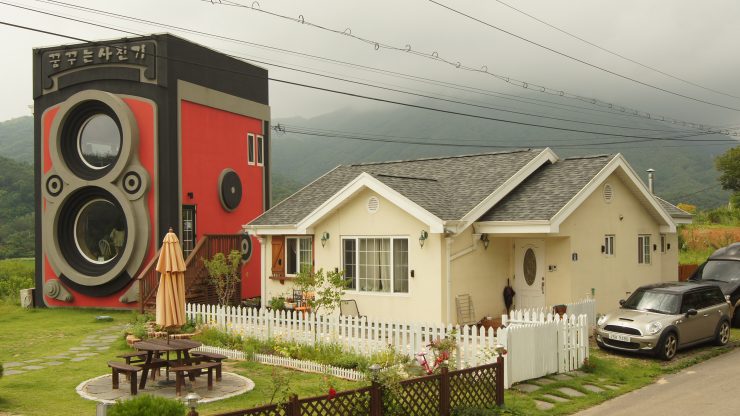
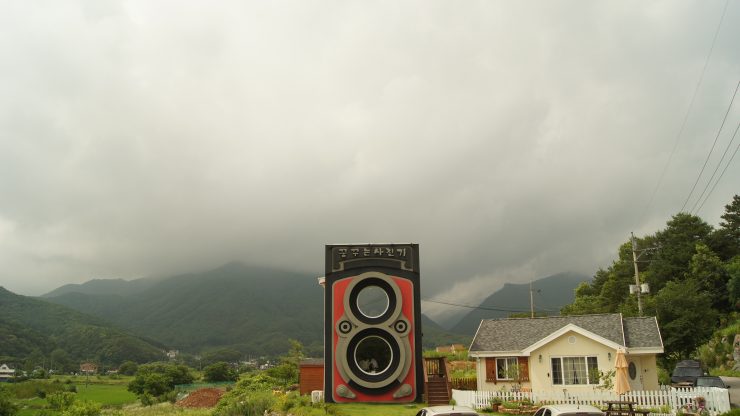
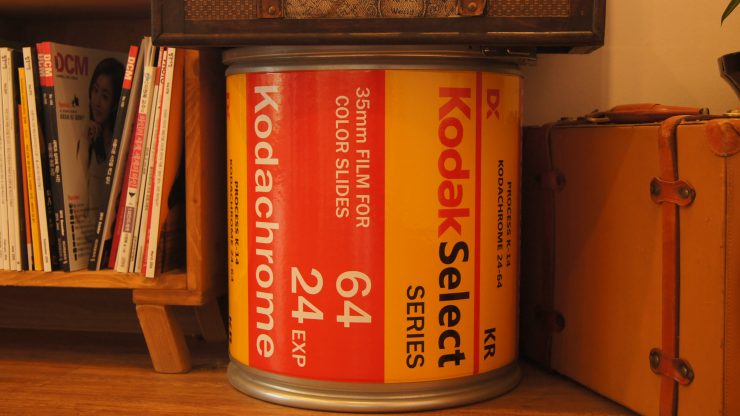
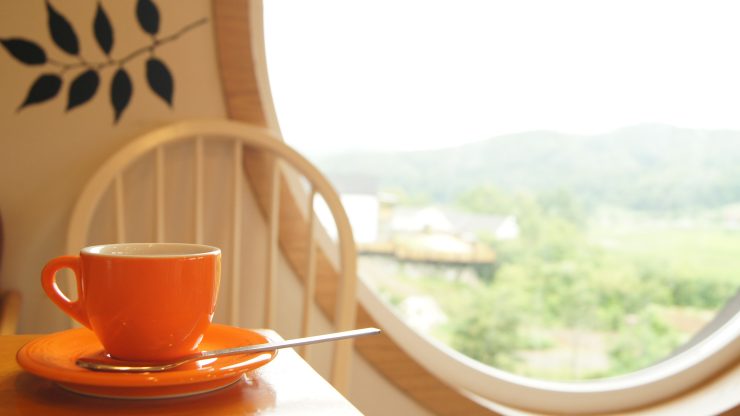
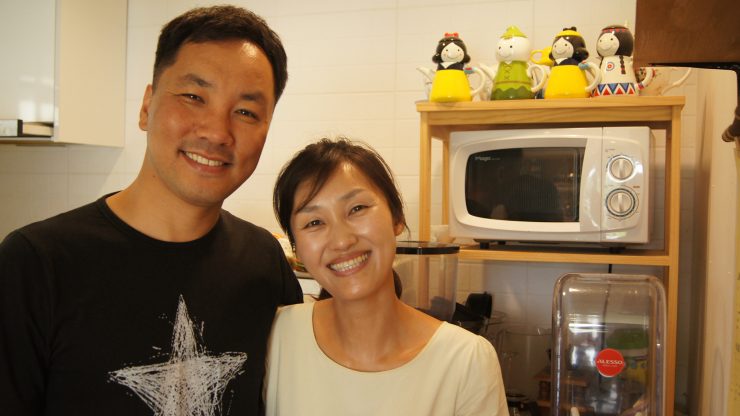
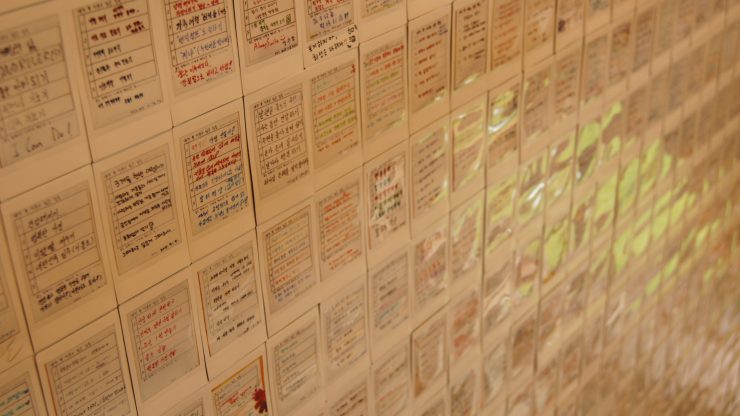
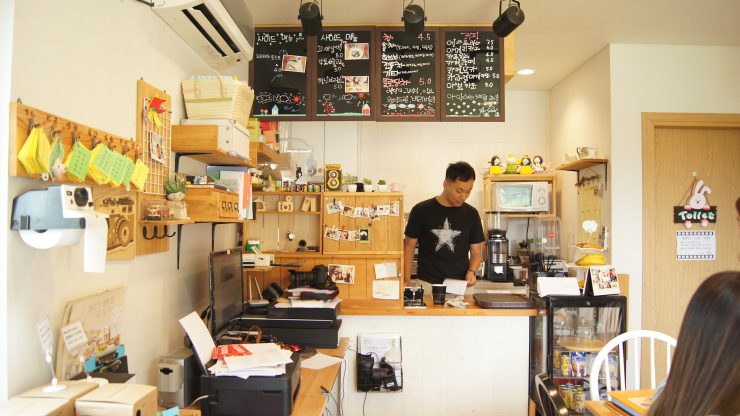
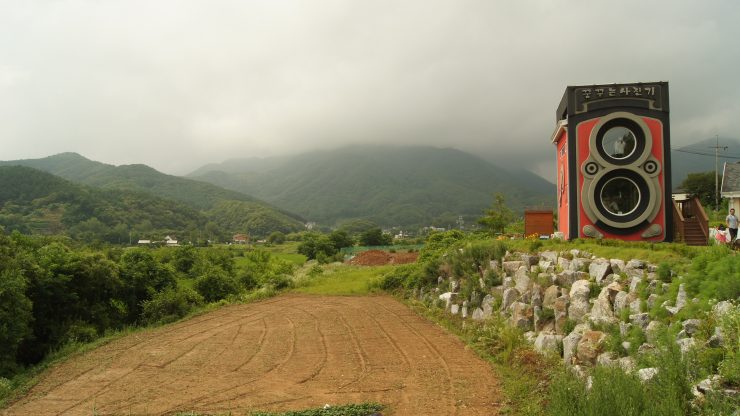
No comments:
Post a Comment